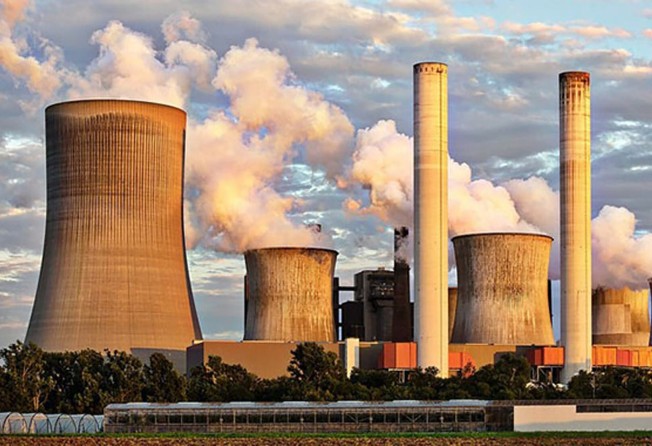
02:07
New UN report on climate change shows a ‘litany of broken promises’, says UN chief Guterres

The ambiguity in China’s plans to stop building new coal-fired power plants outside the country could dilute its climate-control pledge, with more than one-third of the potential capacities falling “in the grey area”, according to an industry report.
Eighteen projects with a combined capacity of 19.2 gigawatts (GW) could still proceed towards construction, the Helsinki-based Centre for Research on Energy and Clean Air (CREA) said, because the promoters have secured the relevant permits and financing for these.
They amount to 34 per cent of the capacity in 50 Chinese-backed overseas coal-fired projects identified by CREA, the think tank said in a report released on Friday. China’s top planning agency has pledged to halt all new overseas projects while pushing those under construction in its much vaunted Belt and Road initiatives in developing countries.
“The Chinese firms will have good reasons to start renegotiating the contracts and see whether it is feasible to use low- or zero-carbon emission generation technologies for those projects” if the host countries intervened, said Zhang Liutong, director at Hong Kong-based WaterRock Energy Economics.
It may be difficult to halt the proposed projects because some of the coal-fired projects are linked to the host countries’ industrial development and lobbied by local governments and businesses, he added.
Ending the use of dirty fuels such as coal is seen as a crucial part of efforts to prevent extreme weather events. The Paris Agreement seeks to maintain global warming at a rate of less than 1.5 degrees Celsius by 2050. To reach net-zero by then, the world should have halted new such investments after 2021, the International Energy Agency said.
President Xi Jinping announced last September that the country “will not build new coal-fired power projects abroad” to support the global green and low-carbon energy transition. The National Development and Reform Commission last month said it would halt new plants overseas and proceed with great caution on those already under construction.
The CREA report said such policies are already having a significant impact on coal plant development globally. Since Xi’s announcement, 15 China-backed overseas coal projects totalling 12.8GW have been shelved or cancelled.
“China’s ‘no new coal overseas’ was a clear signal that the end of coal is nigh,” said Isabella Suarez, an analyst at CREA.
CREA said the NDRC guidelines provided no explicit guidance on the status of pre-construction projects, even though they have secured financing and construction permits as well as explicit backing from host governments.
More clarity is also needed in China’s overseas regulatory frameworks around closing loopholes such as coal-to-chemicals and captive coal power projects, Cecilia Han Springer, assistant director of Global China Initiative at Boston University, told the Post.
If all the coal plants under various stages of construction are completed, they could spew up to 300 million tonnes of carbon dioxide annually, roughly equalling Spain’s annual emissions, said Cecilia Han Springer, assistant director of Global China Initiative at Boston University.
China, the largest international financier of coal projects during the last decade, is currently supporting around 50GW of overseas coal plants under construction and another 50GW under planning but yet to break ground, she added.